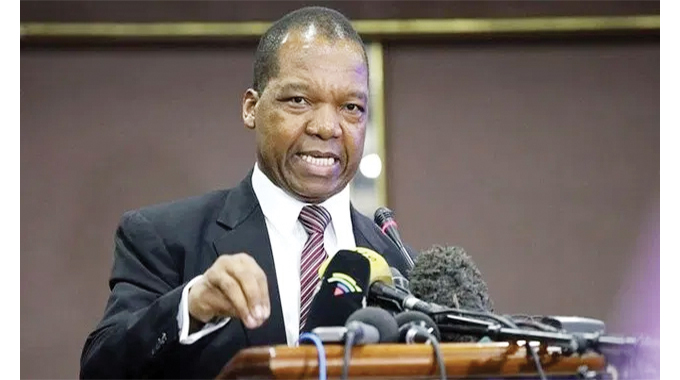
The Sunday News

Judith Phiri, Business Reporter
THE Reserve Bank of Zimbabwe (RBZ) has announced a range of measures to stabilise the exchange rate which include the central bank selling foreign currency using a market-determined rate.
The RBZ said it will from this Wednesday use an exchange rate determined by the market to sell foreign currency to banks who will in turn trade it to their customers at equally market-determined rates in a bid to contain the steep foreign currency volatilities witnessed in recent weeks.
As part of the resolution of the Monetary Policy Committee (MPC) meeting held on Tuesday, in a statement RBZ Governor Dr John Mangudya cited the reduction in foreign currency inflows in the country as responsible for unsettling the foreign currency market.
“The Monetary Policy Committee (MPC) of the Reserve Bank of Zimbabwe (the Bank) met on 6 June 2023 and deliberated on macroeconomic and financial developments in the economy.
The MPC also deliberated on the progress made in the implementation of measures announced by the Minister of Finance and Economic Development on 11 May 2023 and 29 May 2023, respectively, to address the recent volatility in the exchange rate and prices of goods and services in the economy.
“The MPC noted that the prevailing volatility in the exchange rate emanated from both supply and demand side factors. The supply side factors reflected the transitory reduction in foreign currency inflows, while the demand factors reflected the sustained value-preservation demand for foreign currency in the economy,” said Dr Mangudya.
He said in order to complement the measures announced by Government, the MPC resolved that various measures shall be implemented to address supply side foreign currency constraints.
“With effect from 7 June 2023, the Bank shall sell foreign currency at the market-determined exchange rate through banks to support and strengthen the foreign exchange interbank market, and banks shall in turn sell the foreign currency to their customers.”
Dr Mangudya said this measure was calculated to ensure that the interbank forex market is the primary source for foreign exchange needs in the economy and that the foreign exchange auction system shall continue to operate for meeting smaller requirements for foreign payments and for continuous price discovery.
He said in order to ensure that the interbank forex market is self-financing the 90-day liquidation requirement on export proceeds will fall away. The Governor added: “The current interbank maximum trading limits shall be reviewed upwards from US$100 000 to US$500 000, consistent with the current auction limits.
The main and MSME auction will be merged under the US$5 million per week policy, with bid limits of a minimum of US$1 500 and a maximum of US$50 000.” He said the trading margins charged by banks on foreign exchange transactions will be aligned with international best practices.
To address the demand side factors, Dr Mangudya said the MPC resolved to increasing the Bank policy rate from 140 percent to 150 percent per annum, in response to the recent increase in inflation.
He added: “Increasing the Medium-term Bank Accommodation (MBA) interest rate from 70 percent to 75 percent per annum and increasing the Statutory Reserve Requirements on local currency demand and call deposits from 10 percent to 15 percent, while maintaining savings and time deposit requirements at 5 percent.”
Dr Mangudya said the Bank remains committed to continuing with the current tight monetary policy to restore and sustain the exchange rate and inflation stability. He said the issuance of gold- backed digital tokens to augment physical gold coins as a value preservation instrument has gone a long way in mopping up excess liquidity from the market.
“To date, the Bank has sold to the market ZW$31.8 billion and ZW$35.2 billion worth of gold coins and gold-backed digital tokens, respectively. The rolling out of digital tokens for transactional purposes in the second phase, which is projected to commence during the month of June 2023, will buttress the current stabilisation measures.”



